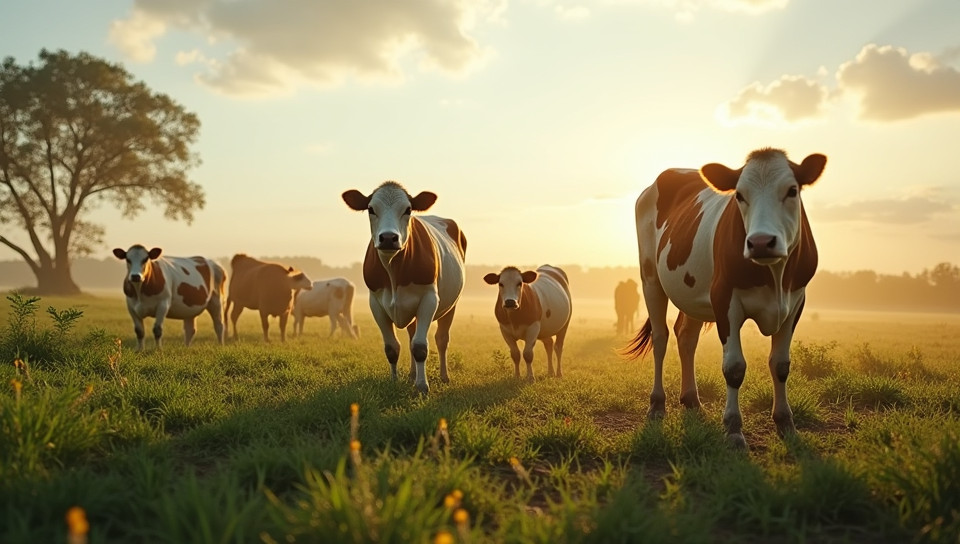Animal agriculture occupies vast areas of land globally 82%

The Hidden Cost of Your Morning Steak: The Devastating Impact of Animal Agriculture on Land
As you sit down to enjoy your breakfast, have you ever stopped to think about the journey that your food took to get to your plate? From the farm to your table, animal agriculture is a complex and multifaceted industry that has a profound impact on our environment. But one of the most striking consequences of animal agriculture is its sheer scale: it occupies vast areas of land globally.
The Alarming Statistics
Animal agriculture is a significant user of land, with an estimated 30% of the Earth's ice-free surface dedicated to raising livestock and producing feed crops. This translates to over 70% of the world's agricultural land being used for animal products, rather than human consumption. In some countries, such as Brazil and Australia, up to 50% of the land is devoted to grazing cattle.
The Consequences of Deforestation
The expansion of animal agriculture has led to widespread deforestation, particularly in the Amazon rainforest. Forests are cleared to make way for soybean and corn crops, which are used to feed livestock. This not only contributes to greenhouse gas emissions but also leads to the loss of biodiversity and ecosystem disruption.
The Water Footprint
Animal agriculture is a significant user of water resources, with an estimated 1,000 gallons of water required to produce just one pound of beef. In addition, the production of animal feed crops such as corn and soybeans requires large amounts of irrigation, further straining water supplies.
- Some key statistics on the impact of animal agriculture:
- 14.5% of global greenhouse gas emissions come from livestock
- 70% of agricultural land is used for animal products
- 1,000 gallons of water required to produce one pound of beef
- 50% of the world's antibiotics are used in animal agriculture
Conclusion: Time for a Change?
The impact of animal agriculture on land and resources cannot be ignored. As consumers, we have the power to make choices that can help mitigate these effects. By choosing plant-based options or reducing our meat intake, we can contribute to a more sustainable food system. It's time to rethink the way we produce, consume, and perceive food – and take action to protect the planet for future generations.
- Created by: Viraj Patel
- Created at: Aug. 19, 2024, 10:46 p.m.
- ID: 7783




